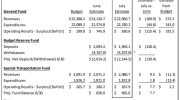The supply portion of electric bills for customers of The Connecticut Light and Power Company, d/b/a Eversource Energy (“Eversource”) paying the Standard Service supply rate is scheduled to increase on July 1, 2022, as approved by the Public Utility Regulatory Authority (PURA) on May 10, 2022, as follows:
| CL&P/Eversource Standard Service Rates | ||
| 7/1/21 | 1/1/22 | 7/1/22 |
| $0.07003 | $0. 11484 | $0.12050 |
Prices above are for typical residential service per kWh of customer usage. This will impact the average Eversource residential customer using 700 kWh per month by increasing monthly bills by approximately $3.96.
The main reason for the Eversource rate increase is the global impact of Russia’s invasion of Ukraine and the higher prices of oil and natural gas globally and here in the U.S.
The Office of Consumer Counsel urges consumers to continue to make every effort to reduce bills through energy conservation and efficiency measures. For more information on reducing your usage and on opportunities for energy efficiency and clean energy improvements, please visit EnergizeCT.com.
Connecticut residents in need of energy and water assistance are encouraged to apply before June 30, 2022 (an extension of the original deadline). Additionally, for qualifying households that use oil or propane, the state will pay for fuel deliveries through May 31, 2022. More information is available below (Q&A #12) and on the Department of Social Services website, linked here: Connecticut Energy Assistance Program (CEAP) – Heating Help in CT.
QUESTIONS AND ANSWERS
- How much is Eversource’s Standard Service rate changing?
The Standard Service rate changes are shown in the table above. The new Eversource rate of $0.12050 (12.050 cents) per kWh is an increase of $0.00566per kWh, or for residential customers a 4.93% increase, over the rate that was in effect as of January 1, 2022.
- Will this impact my bill?
All impacted Eversource customers will be charged the new Standard Service rate as of 7/1/22, as identified in the table above, multiplied by their monthly electricity usage as measured by their electric meter in kilowatt hours.
The scheduled increase will affect Connecticut customers of Eversource who purchase their supplied electricity directly from Eversource, as opposed to from a third-party supplier.
Please note that this increase does not apply to customers of the United Illuminating Company (“UI”), who will see a slight decrease in residential standard service rate of $0.000531 per kWh, or a 0.5% decrease over the rate that was in effect as of January 1, 2022.
- How do I know whether I purchase electricity supplied directly from Eversource or from a third-party supplier?
Eversource customers should look at the first page of your bill. Just under the blue header on the right-hand side that says “Your Electric Supplier Is”, if the next line says “Eversource,” then you are enrolled in Eversource’s Standard Service supply rate, and you will be affected by this rate increase. If that line identifies any other company, your bill will not be immediately impacted by this rate increase. You can see a sample bill from Eversource here.
- Why is the Standard Service rate changing?
Every six-month period, the Standard Service supply rate of electricity is approved by PURA following a competitive procurement process. The Standard Service rate is the price paid by you, as a ratepayer, for the cost of generating the electricity you use. This is different from the transmission and distribution rates, which is the price you pay to cover the costs of delivering the electricity to your home. The standard service rate is a pass-through rate, meaning the money you pay to your regulated electric distribution company is passed on directly to the supplier from whom they purchase the electricity you use. Eversource and United Illuminating do not derive any profits from the Standard Service rate.
The supply rates are directly affected by the market price of natural gas, which is the fuel used to generate the majority of Connecticut’s electricity. When the market price of natural gas increases, supply rates also increase.
You can read more about the specifics of the procurement process used to determine the Standard Service rate below (see Question #7)
- Why has the market price of natural gas increased?
The market price of natural gas is affected by many factors, on both the supply and demand side of the equation. Russia’s war in Ukraine has created volatile energy markets and is putting upward pressure on oil and natural gas prices. The oil/natural gas markets are global and even though the United States only imports a small amount from Eastern Europe, the disruptions are affecting prices worldwide, including in the United States.
Additionally, while natural gas prices fell substantially during the global Covid-19 pandemic due to decreased demand, as the world economy slowly recovers from the global Covid-19 pandemic, demand is increasing as business production and consumer activity increases, at a time when supplies have been lower due to the reduction of oil drilling and natural gas production during the height of the pandemic. This has caused the market price of natural gas to more than double over the past year.
- How is the Standard Service price of electricity set?
In the late 1990s, Connecticut adopted a plan to restructure its electric industry whereby Eversource and UI were no longer allowed to generate electricity. Acting strictly as distribution companies, they must purchase electricity from third party suppliers.
The process by which Eversource and UI purchase the electricity is regulated by PURA through a Procurement Manager. The OCC, Eversource, and UI are active participants in the procurement process, where competitive bids are solicited on a quarterly basis from electric generators and suppliers.
Connecticut’s procurement process allows us to capture competitive prices multiple times a year, to help ensure that consumers are paying the lowest possible market-based rates for electricity supply. If a competitive procurement plan were not in place, the July 2022 supply rate changes would likely be more substantial. For example, the year-over-year increase from July 1, 2021 to July 1, 2022 is 72.1% for Eversource, whereas the futures market for natural gas has increased over 100% over the past year.[1] As discussed above in Question #4, electric supply rates are directly affected by natural gas prices.
- What about the Delivery part of my bill?
The rates you pay for the transmission and distribution costs of your electricity, which are identified as Delivery charges on both Eversource and UI bills, are determined through different regulatory processes, and will not be affected by the increase to Standard Service rates. You can find information about the most recent Eversource distribution rate change here.
- Are these the highest Standard Service rates we’ve ever had?
No. Standard Service rates as of January 1, 2015 were $0.12629 and $0.133108 for Eversource and UI, respectively. Those rates were 5% higher than the upcoming rate for Eversource, and 20.2% higher than the upcoming rate for UI. -
How long will these rates be in effect?
The rate will be effective on July 1, 2022 and a new rate will take effect January 1, 2023.
Here is a graph showing the historic rate changes in Standard Service here in Connecticut over the past 5 years:

contributed graph -
Are there options other than standard service for electric supply?
Consumers who would like to shop for alternatives to standard service may do at the Energizect.com website, where electric supply may be purchased from third-party suppliers. Please note that the above-described market conditions may affect the prices offered by third-party suppliers. Consumers should be sure to compare the prices and conditions offered by third parties to the Standard Service rates offered by Eversource and UI.
OCC encourages all consumers who wish to use a third-party supplier to do so via the Energizect.com website, which provides impartial and accurate information about available third-party generation rates.
Please be aware that an increase in standard service prices is often accompanied by an increase in high-pressure, and sometimes deceptive, sales pitches by third-party suppliers via telephone and door-to-door solicitation. In the coming months, OCC advises consumers to be hypervigilant about potential scams or disadvantageous third-party supply offers.
Please keep in mind, Energy Suppliers:
- Cannot charge sign-up fees;
- Cannot charge monthly fees in addition to the contracted price of supply;
- Cannot advertise a “teaser” rate followed by an increased rate;
- Rates must be at least 4 months in length
- Cannot charge an early termination fee;
- Do not know, and cannot infer that they know, future Standard Service rates;
- Are not affiliated with Eversource or UI;
- Are not affiliated with PURA, DEEP, OCC, or any other state or federal government agency.
-
How do I apply for bill payment assistance?
At the end of April 2022 Governor Lamont announced that a new online application is now available for heating and water assistance, and that the deadline for applying is extended for the 2021-2022 season to June 30, 2022 for Connecticut Energy Assistance Program (CEAP)[2] and Low income household water assistance program (LIHWAP)[3] benefits. For qualifying households that use oil or propane, the state will pay for fuel deliveries through May 31, 2022.
The CEAP and LIHWAP programs are administered through local Community Action Agencies (CAAs) across the state. In addition to applying online at ct.gov/heatinghelp/apply, residents can also contact their local CAA with additional questions or to apply for assistance in-person or over the phone. (Click here to find CAA contact information.)
Connecticut residents are encouraged to apply for assistance before June 30, 2022. To apply online for CEAP or LIHWAP, visit ct.gov/heatinghelp/apply. Please find updates due to changes that were made during the program year to the 2021/2022 CEAP Program:
May 31, 2022 – Last day for deliverable fuel vendors to submit tickets/invoices for deliveries authorized through May 24, 2022
June 30, 2022 – Last day for request for replacement or repair under the Heating System Repair/Replacement (HSRR) Program
June 15, 2022 – Last day to submit completed HSRR requests to DSS
July 30, 2022 – Last day for HSSR work to be completed by companies for all approved replacements and repairs (including those under $750 that do not need prior DSS approval)
Until further notice, CAA’s can continue to authorize servicing (CTT) of heating systems that include minor repairs up to $200. Please note that no replacement or repairs other than those $200 or under can be requested/completed after the dates mentioned above. Refer to the chart below to contact your local CAA by telephone.
If you have any questions or concerns, please feel free to contact the OCC or PURA:
Office of Consumer Counsel Public Utilities Regulatory Authority
10 Franklin Square 10 Franklin Square
New Britain, CT 06051 New Britain, CT 06051
860-827-2900 800-382-4586
[1] Based on average NGZ1 pricing for September 2020 ($2.527) vs. September 2021 ($5.867).
[2] CEAP is a federally funded program that provides winter heating assistance to more than 75,000 income-eligible households every year. Eligible families can receive between $410 to $1,015 in basic benefits alone. Families may also be eligible for matching payment plans, protection from shutoffs, and replacement or repairs for heating equipment and water heaters. Both homeowners and renters are eligible, and assistance is available for natural gas and electric heat, as well as deliverable fuels like oil and propane.


